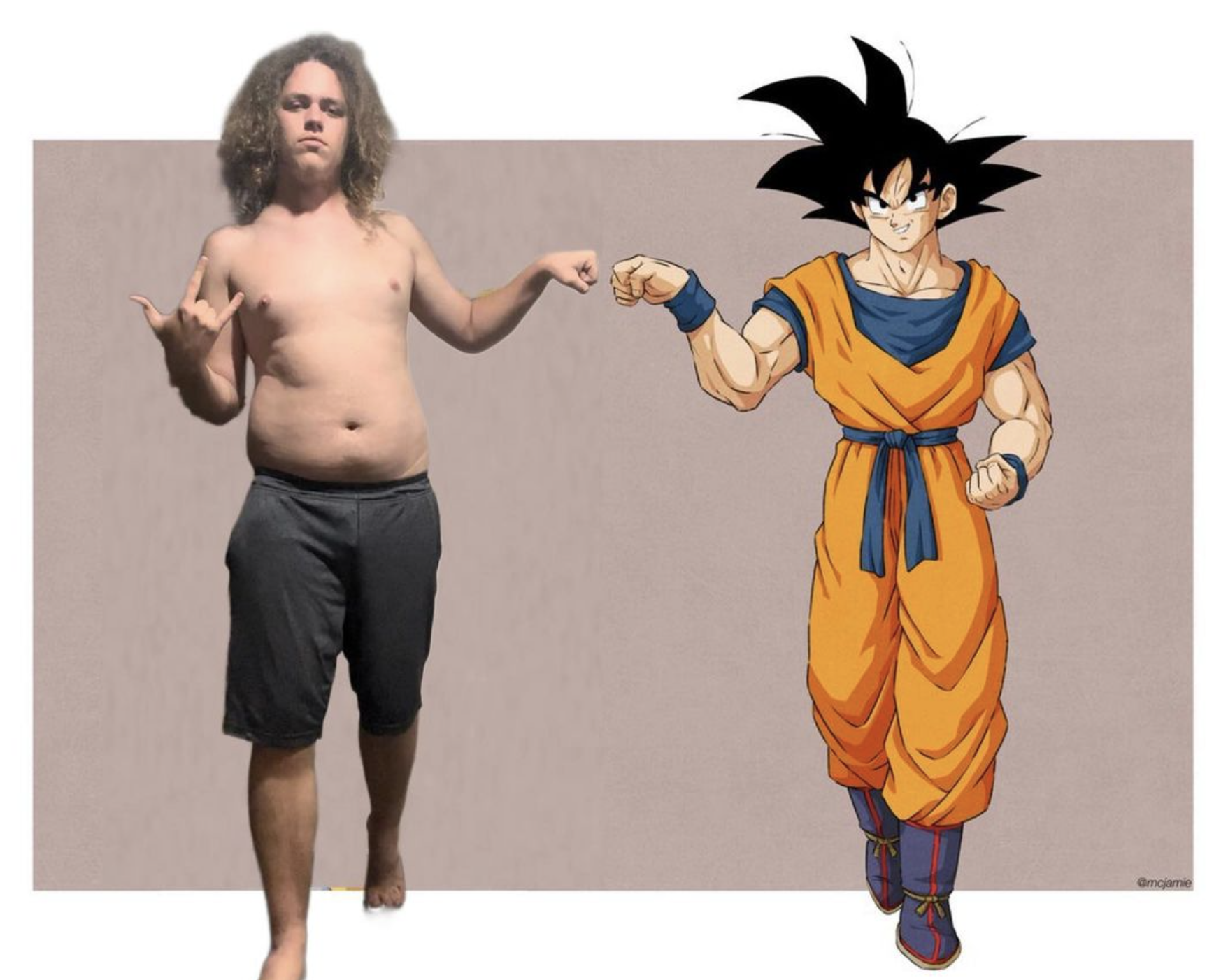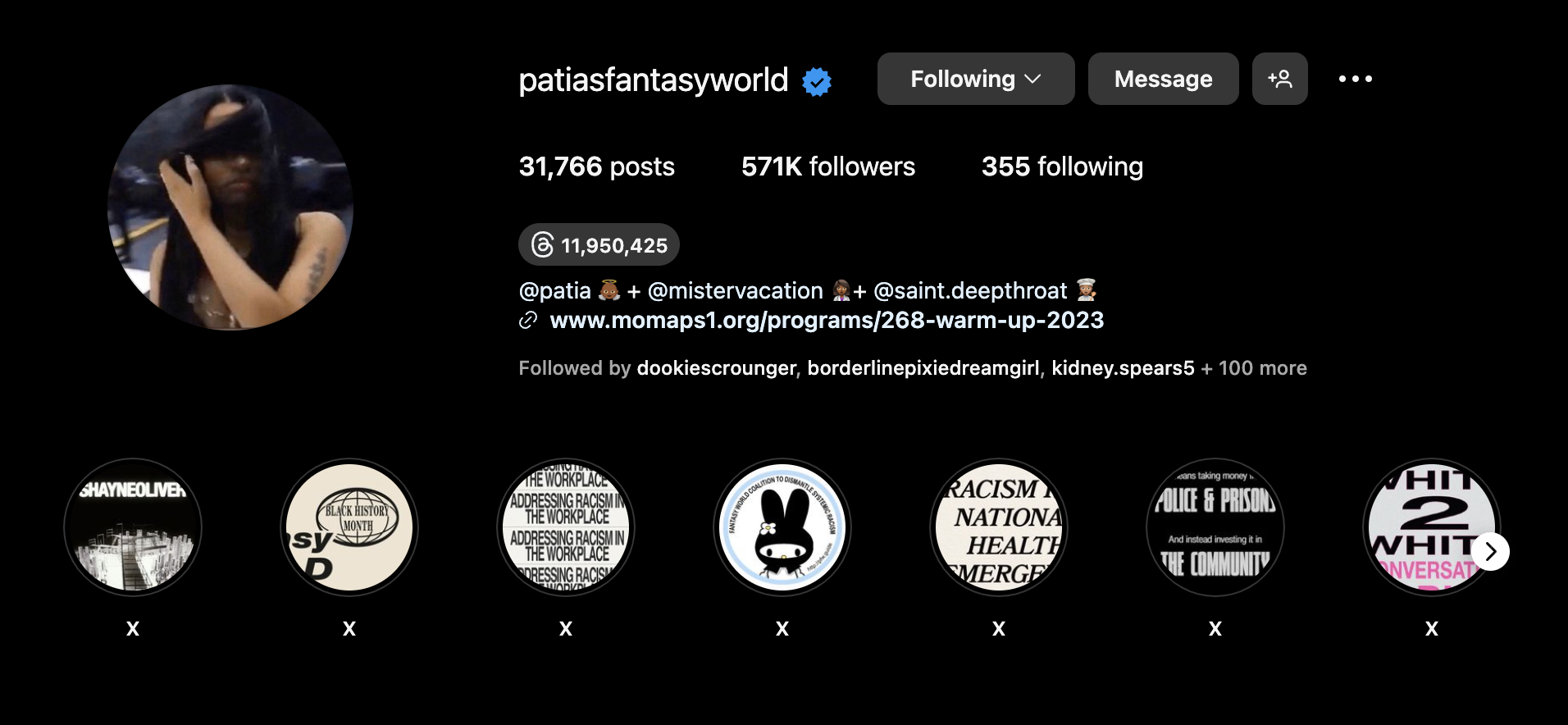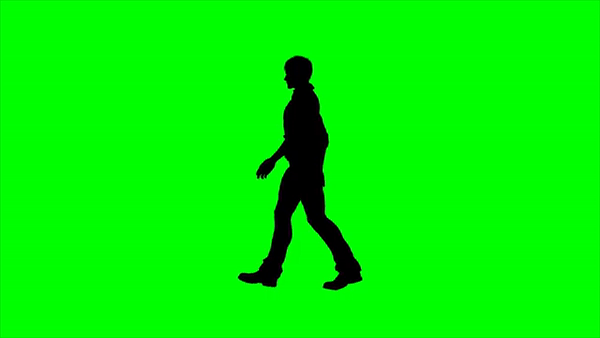Nass Vs. Patia: The Art Of The Face Reveal
An Opinion Piece On How To Post Face As A Meme Page Admin In A Post-Post-Ironic Meme Landscape
I have a deep-seated philosophy that every great meme page dies when its admin posts face. It usually happens when they reach that critical, 10,000-follower milestone. They think, “I need to capitalize on this,” and then they think that we’ll be impressed that they’re a 7.
I truly feel that a meme page is as good as the idea of its admin—not the admin themself. In the mind of every, devout follower, they have an image in their head of who’s behind the page. That image is a part of what keeps them coming back. The viewer wants to understand how the brain (or group of brains) behind the page ticks and they’ll continuously mold that imaginary friend in their head.
No matter how cool or hot a meme page admin is, thousands-of-followers down the line, when they decide to reveal their face, they’ve forgotten that the broad forefront of their posts did not involve them. So then, after their true, physical identity is leaked, they don’t take the proper steps to integrate their identity into their content. It’s like the golden rule in screenwriting or fiction: don’t introduce a character that can’t be used further.
To my knowledge, the only Instagram meme page who’s posted face, has not deeply integrated their identity into their posts, and has still grown a large, dedicated following is @patiasfantasyworld. This being said, I’m pretty sure her identity was always associated with her page. I mean, it’s literally in her username: Patia. I’m pretty sure it was just her personal, spam account until Instagram’s algorithm gave her a mega-boost and enabled her to start an uninspired, DJ career—similar to her uninspired slew of screenshots and reposts.

I mean, don’t get me wrong, Patia’s page is funny and it’s not trying to be more than it is—repost spam. However, you can’t have 570,000 followers without catering to a lowest common denominator. It’s not a bad thing to have mass appeal. If anything, Patia is lowering the threshold of what normies think is esoteric but if everyone who follows Patia thinks that they’re even slightly more esoteric and ahead of culture than most, there’s gonna be a hundred, smaller micro-pages trying to subvert that groupthink of multi-layered, meme literacy that her page has established for its followers.
As I kinda mentioned, Patia’s identity is accessible and obvious to her followers but it doesn’t play a major role in the breadth of her content. Her identity is a backdrop to her posts, which has ultimately played a large part in her success. Her followers love to see her literal self winning and they love to live vicariously through her. She’s fostered a true, parasocial relationship dissimilar to anonymous pages.
The parasocial relationship between an anonymous meme page and its followers is flipped, as in, the parasocial value of an anonymous page benefits the status of the follower more so, in that, their status as a follower of the lesser known, increasingly obtuse page earns them bragging rights among their friends and randos online. Meanwhile, the lowly admin—who no one knows about—seemingly has to find pleasure in their anonymity, smiling while reading their own comment sections where users flail to understand their twisted mind, for lack of a better term.
With this, for many, there’s not much value to being anonymous once you reach 10K (in my interview with the admins of Incellectuals, they talked about this phenomenon). When the admin posts face, they realize that they can promote themselves, their passions, their dream careers, like Patia with her music. A Linktree appears in the page’s bio and leads to acting portfolios and modeling measurements.
Regressing, I guess it’s unfair to say that Patia’s DJing is vapid. If it was truly vapid, no one would have held on to their follower status after her promotion, finding it all cringe. However, I’ve actually been to her sets before, serendipitously, because she’s practically a Brooklyn haunt at this point, and no one’s really dancing. They’re more focused on the fact that she’s her.
I should also take back my point that Patia’s page is the only page to have posted face, promoted something, and not had drastic repercussions. An honorable mention is @yung_nihilist, who operates on a smaller scale and promotes podcasts and written work. In a similar vein, there’s @joan.of.arca who gained fame because she posted Arca during a peak in the artist’s meme relevancy back in 2021.
Pinned at the top of both profiles are the admins’ faces, clear as day, linking to articles written by thirsty, young writers just itching for a chance to interview someone they’re actually interested in, and also, someone who they can pitch to their less-in-tune editors; someone who can embody the current state of actual, meme culture because they have 100,000 followers and it’s obvious. “They’ve proved themselves worthy,” is the motto.
On top of that, the admins are clickable, in that, (in a very vain way) both @yung_nihilist and @joan.of.arca are hot. Interview Magazine can invite Ms. Of Arca in for a photoshoot because they know that the parasocial relationships she’s already built around the page could exponentially grow as she becomes the marketable, thumbnail-ready backdrop (like Patia) to be added to the collection of their content that’s already sourceable on their Instagram profile.
The unmasking of a meme page admin as a secret, hot person reminds me of a moment from an episode of Normal Gossip called “Podcast Famous.” That day’s story revolved around a group of four, male podcasters and some of their female fans who wrote horny fan-fiction about them. Upon realizing that a key factor in the parasocial relationship was the men‘s attractiveness, the guest, Brian Park, asked, “What ever happened to that old joke... You have a face for radio?”
Him and Kelsey McKinney, both podcasters themselves, joked about how podcasters have to be hot people nowadays, when at one time, they were supposed to be hidden and possibly hideous, or at least, their faces didn’t matter in a time before Google and Instagram existed.
I think that the joke is deeply applicable to meme page admins too. Like podcasters and radio hosts, meme page admins are slowly revealing more about themselves, coming out of the shadows once they reach a certain follower threshold. However, the main difference between the face reveal of both professions is that meme page admins have a tendency to be disappointing because the “body of work” that they represent is predominantly non-lineal to their actual selves.
As I’ve already stated, each follower has, in their minds, an almost unrealistic depiction of who the admin is behind their favorite, shitpost page. On top of this, shitposts are non-indicative of who the admin is in real life, especially when compared to the human voice of a podcaster with opinions. Sure, one page might read as female-coded, with coquette aesthetics and Serial Experiments Lain Whisper-posts, but there is no, true voice, just vibes and signifiers when identifying who the person is in real life.
In this thought experiment on face reveals, there’s a reason too why I’m not mentioning Twitter users and focusing mainly on image-based, Instagram pages. I would throw Twitter users into the same, content pool as podcasters. Plain words and sentences are akin to a tangible voice, non-akin to the chaotic signifiers that shitposts hold. This is why when someone like @JUNlPER (R.I.P.) reveals their face, it’s not as jarring because the character behind the face was always there in the words. An obvious counter to this would be @dril who’s never revealed his face to the masses, however, I personally know people who know him (which speaks more to the obvious circumstance that an anonymous, meme page admin has friends in real life that inherently know about their page because they were following it before they got “big”). Regardless, Dril has never made his face easily accessible like Patia.
I’m more fascinated, in a way, with meme page face reveals that don’t promote anything. It’s just, you know, the face of the person behind the page—just a random selfie to inform everybody.
One of my favorite studies on the phenomenon—while also thinking about face reveals in the context of their aftermath and the seemingly necessary function of integrating one’s identity afterwards—is, kind of hilariously, Ibo Eshak. If you’re unfamiliar, in the heyday of 2018 hood irony, the edgy, racist and Kurdish Ibrahim Evans revealed himself as @cumcoochie, predominantly within private DM groupchats with his fellow “nba2k15hoodmoments” variants.
The various selfies of the infamous @cumcoochie both backfired on him and propelled him. His skinny, bratty, chud-like phenotype snowballed his face reveals into the character “Ibo Eshak” who, in a strangely evolved turn of events, has—in the year 2023—become a creepypasta for Spanish-speaking internet users.
Yeah, literally on TikTok this year, a bunch of random, Spanish-speakers have decided to fabricate a “lost media” story about the notorious, hood irony admin, not knowing who he is. For them, “Ibohammad Eshakur” (an extended version of “Ibo Eshak”) was a YouTuber from 2008 who posted creepy, Arabic videos (basically old school, arabfunny videos), centering on an uncanny selfie which was literally just an edited photo of himself that he made hyperbolically funny-looking. It makes sense, in a way, that specifically Spanish-speaking internet users would generate lore around the photo based on the image’s resemblance to Selene Delgado: an infamous, Mexican boogeywoman that never existed except in the minds of Spanish-speaking, creepypasta enjoyers.

According to recent Reddit posts, Ibo Eshak is laughing, literally rolling around on the floor at the idea of a bunch of ignorant people, who speak a different language, thinking that he’s from 2008, when he’s probably not even 21.
All ridicule aside, Evans was a deeply influential meme page admin, working in tandem with a deeply influential circle of late 2010s Instagram pages, around the time when the hood irony genre of memes was created. Of course, hood irony is inherently linked to racism (read my piece on the phenomenon of Thugposting for more context) but regardless, the chaotic, visual signifiers of the niche’s videos and images have gone on to define all types of deeply-layered, esoteric posts that read like YouTube poops on the confiscated phone of a dark entity.
Hood irony, as some may know, has since devolved into a mainstream trend and a household name—mostly due to TikTok’s influence—leading to new, uncharted, visual and comedic territory that meme creators are currently trying to define and navigate.
Post-irony—which is currently peaking in the meme world—is defined by incoherent visual and comedic signifiers that are perceived as funny due to the viewer’s embedded anticipation of irony when viewing any meme. I talk about this phenomenon in my piece on Casino Irony which is a perfect example of a post-ironic trend. To elaborate here, though, post-irony is an era of memes and shitposts that subvert the expectation of irony in memes. The genre of ironic memes, which started on Reddit as far back as 2008, subverted the small timeframe of meme history present before the year, as in, Rage Comics, Advice Animals and Lolspeak. The irony in ironic memes was anti-humor that unabashedly used the visual formats and signifiers of the precursor era, thereby, being the “subversion” of the prior era. This meant using characters, like Cereal Guy, in a ways that he wasn’t meant to be used by breaking the expectation of his format, as in, “subverting” that viewer’s expectation.

So, if the “ironic” era in memes started in 2008, the so-called “post-ironic” era started around the year 2017, predominantly surfacing within the hood irony realm. Hood irony is a genre of memes that satirize the content of websites like WorldStarHipHop or RapTV. As internet comedy and discourse became increasingly dependent on AAVE and Black content creators (think Black Twitter or Vine era King Bach), the over-saturation of such content led to humorous and memetic subversion, as in, people started to make rap infographics or use swag-adjacent “slang overload” to blend into “hood” humor but, ultimately, use anti-humor to highlight the over-saturation of such content.
Although the original form of hood irony content was still in an “ironic” era of memes, the genre has slowly progressed into “post-irony.” The best way to characterize “post-irony” is the use of chaotic, esoteric and almost unreadable visual signifiers that become readable due the viewer’s expectation of irony. When expecting a meme to be ironic, in that, it uses anti-humor through the visual history of memes that came before it, “post-post-irony” implements visual motifs that are alien and never-before-seen, however, because they’re presented in the format of an ironic meme, there’s an “Aha!” moment that happens in the viewer’s head that identifies the centerstage yet out-of-place motif as an inside joke that they’re now in on.
A perfect example of a post-ironic meme which uses the aforementioned, visual-based method of anti-humor subversion is Silhouette Irony. An Instagram page called @chxallah started the obtuse, visual language back in 2020, and since then, silhouettes walking, running and dancing have taken over videos on TikTok. Under the expectation of “hood irony,” the silhouettes—which have no direct correlation to RapTV, AAVE or WorldStarHipHop—are read as having history, inherently drawing curiosity, intrigue and copycats, making the nonsensical motif a full-blown trend.

Considering the timeline of Silhouette Irony, as in, how it evolved from an obscure Instagram page’s trope to a mainstream TikTok trend, alludes to the fact that, like ironic memes by the late 2010s, post-ironic memes are also becoming over-saturated in internet spaces. Therefore, the subversion of the expectation of post-irony is already taking place in the most niche corners of internet memedom, reserved for true meme junkies that need that next, stronger fix just to laugh a little bit.
Subverting post-irony is an interesting task, in that, a creator needs to subvert “anti-anti-humor.” Anti-humor is inherently a method based on flipping the expectation of humor, so, how does one evolve from anti-humor without regressing humor, and therefore, regressing to a previous state of internet content?
In my opinion, a key point of success for every post-ironic meme page, which has risen in the 2020s so far, is anonymity. It’s one of the reasons why I wouldn’t define @patiasfantasyworld, @yung_nilhist or @joan.of.arca as totally post-ironic. Although their reposts are often post-ironic memes—because that’s the inevitable nature of the current landscape—their pages read more like subreddits, compiling every piece of content from their current era and putting it into one place, trying (for the life of them) to keep their follower numbers growing by catering to mass appeal, and uploading content that reads like the term “safe edgy.”
For any of their pages to enter post-post-irony, they’d need to subvert their identities in a way—that I believe—a modern, 2023 groundbreaker should. While post-ironic pages should be anonymous, I believe the ideal post-post-ironic page going forward should completely include their identity but utilize themselves in a way that’s currently hard to define and ungroundable.
Funny enough, I think that the current trendsetter, among hyper-niche meme circles, is an Instagram user named @garbanzo_meatball (formerly named @nass_is_openly_a_pikmin). Nass, for short, is a kid who’s probably not 21 years old. He’s got big, curly hair, a faint, little mustache, and a lot of Hawaiian shirts for some reason.
I know all of this because he’s a frequent character on his own page, which reads like both a personal account and a spam account. Unlike TikTokers, who usually use themselves in their content (centering their content around themselves), Nass doesn’t post front-facing-camera characters or intentionally cringe, trend-following content (like Alpha Pookie, for example). Instead, he seems to be nursing an online presence that is in a league of its own.
For me, one of the key indicators of Nass’ “in his own league” status is how he references subcultures, like movies and TV, that are not commonly referenced. In my piece about Luke Blovad, in which I criticized the accelerationist nature of his fashion, I ended with my thoughts on where “nostalgia” in fashion is headed. For me, wearing a Fortnite shirt ironically in 2023 is too “on the nose.” The real, forward-thinking nostalgia is a subculture that everyone knows but, if asked to make a “mood board” of the past two decades, the best choice for forward-thinking, nostalgia-based fashion wouldn’t be listed. Memes, in this way, are similar to nostalgia-based fashion. A post-post-ironic meme creator, when picking TV or movies (among other media) to source from, can’t venture too deep into obscurity because they would come off as an ironic tryhard. Instead, they have to stay close to center but remain asymmetrical.
That’s why when Nass posts Beavis and Butthead or We Bare Bears memes, it’s like he’s going into newfound territory but is covering his tracks with the illusion that it’s still accessible and widely recognizable. He’s not being an irony tryhard who’s too blind to see that the more obscure you go, the more obvious your thought process becomes.
Another interesting thing about Nass’ personality is that he’s a total and unabashed nerd; It’s obvious. For someone wanting to build a parasocial relationship with him, he’s the equivalent of that one band kid who you actually liked. I like the “band kid” comparison because it signifies something that Nass also does really well; he plays dumb.
In comedy, especially in forms like stand-up, playing the part of a “dumb guy” can make a career for a young comic. The comedian should never be the smartest person in the room. In actuality, they have to be the smartest person in the room but their cadence, personality and jokes have to ultimately infer the opposite. As long as they can convey that they’re up on stage only because of sheer luck and good vibes, they can have everyone laughing at them while also laughing with them.
Nass does this especially well but in the form of a meme page. Of course, an anonymous meme page cannot properly develop the comedic phenomenon that Nass is cultivating. Nass is ultimately subverting the cringe-inducing expectation that the face reveal of an ironic meme page admin holds.
My favorite way that he does this is when he randomly includes himself in cartoon scenes, offering his hilariously dull wisdom that—under the veil—a seasoned viewer can see the brain power in. He’ll greenscreen himself into an episode of SpongeBob just to give Squidward a serious piece of his mind. The dryness of his addition, plus, the fourth wall breaking awareness that it’s him, plus, the muted awe that he put effort into the low-effort video, equals to a piece of modern, comedic media that feels ungroundable, in that, his use of his own identity is a both compliment and a subversion of the landscape of post-irony.
With all this being said, however, Nass floats around 19,000 followers on a good day. When I first found Nass—I’ll admit it—I didn’t get it. I had to write about him for work because he started the Family Guy singing Maroon 5’s “Memories” trend. I liked the meme, and, in general, I like to keep an eye on new creators who seem to be making waves, so I gave Nass a follow and watched him post for a while.
There was a point in his page (which his fans, and many other people on the internet, call “arcs”) when he was satirically inferring that he “fell off” because, I guess, some people were commenting low-vibration hate in his comment sections. He made a couple of videos during that arc where he plainly stated I-fell-off-adjacent affirmations, seemingly trying to play into the idea that his content had already peaked.
I didn’t like that. It felt too “on the nose” by being low effort and reactionary. However, just as I was about to politically turn on him, he posted a video where he played the part of a caveman and told his viewers, as the character “Gorg,” that he was now taking over the role of admin because Nass had fallen off.
It was hilarious, seriously. For some reason, in 2023, it just feels right to bring back the caveman gag in comedy.
That moment on his page gave me the realization that he knew what he was doing. In a painting or a drawing, an artist might make a wrong stroke, but they always know how to work around it and mold it back into the final body. Nass’ error and bounce-back made me look back at his work with a new eye, and like any good musician that sounds bad on the first listen, I started to see something vivid and revolutionary that I hadn’t seen before.
Since then, I’ve had to write about Nass two more times for work, based on memes that he either started or majorly influenced. Namely, the Great Value Blueberries jumpscare and the re-editing of that TikTok rapper Jay Eazy’s “Mega Man” video. In the latter of which, Nass posted one edit that mashed Jay Eazy’s song with the Fanboy and Chum-Chum intro (amazing). Again, he demonstrated his skill in surfacing a perfectly post-post-ironic subculture and, this time, he mashed it with a modern, hood-irony-adjacent video that satirized the current state of the mindless, vertical-scroll shilling of 2023, social media content.
With all this in mind, let’s be real. What Nass is doing is not for everybody, as in, not every Instagram, meme page admin could do what Nass is doing. For many meme page admins, the reason they’re anonymous is because they’re not comfortable being anything but anonymous. Plus, they know that there’s a responsibility that emerges once a face is revealed. If that responsibility is not inventively integrating their being into their content, then it’s at least being outright attached to the history of their digital footprint.
I don’t believe someone like Patia could do what Nass is doing because, well, she doesn’t want to and she doesn’t have to. She’s seemingly gotten what she wanted, which is—to not put too many words in her mouth—clout. Why move into the evidently groundbreaking territory that Nass’ page signifies when the screenshot game has worked, and is still working, ‘til this day?
I think, in general, I’m a dopamine addict when it comes to the evolution of funny people. I’m chasing the dragon, especially when it comes to finding a new content creator that’s breaking the mold of the current, meme landscape. I truly believe that a post-post-ironic landscape is inevitable and is already happening. The key factor is using one’s identity instead of hiding it, or worse, revealing it but then not using it.
After publishing this piece, I reached out to Nass for comment, sending him a DM that I thought might slip through the cracks. Luckily, he’s a guy that checks his message requests and sent me back two voice memos in which he said something along the lines of “Duuude” in both.
Before asking any type of question, I prefaced my prying with the choice to opt out of answering at all. For some meme page admins, showing “how the sausage is made” can be detrimental to the aura of a page, akin to breaking down humor, in general, as the more you whittle down what’s happening in a joke or meme the less mystical it becomes.
After considering the repercussions, Nass agreed that breaking down his page would not be totally beneficial, specifically referencing the Great Value Blueberries gag as something not worth touching. But, despite being avoidant towards the deconstruction of humor, Nass provided nuance, admitting that “I always love seeing my shit get discussed. It’s all up for interpretation at the end.”
In a way, revealing how one makes content (as in, the inspiration, the thought process and the conclusion behind it) is the unnecessary step passed a face reveal. It’s more revealing than a face reveal and I think, in a way, that’s why I’m most cringed out when meme page admins reveal themselves only to immediately do an interview for a tier three magazine. They do a “double whammy” that doesn’t only hurt them once but hurts them thrice because the second “reveal” is doubly more revealing.
So, yeah, I’d say Nass gave the right answer. As a meme creator, seeing something you’ve spawned spread and accumulate discourse is satisfying, and oftentimes, people add value and background to the meme that you might’ve never intended or thought of. In truth, Great Value Blueberries is “not that deep” akin to most post-post-irony that leaves the interpretation up to the viewer. But, evident in the ramblings of this piece alone, it’s undeniably fun (and somewhat important) to treat these intricacies like something worth giving a shit about.
After he obliged with going forward, I asked Nass a face reveal-related question. I wondered if his page had always been associated with his identity, or, at some point, he decided to post face. That crucial moment (in my head) was one of no return. For Nass, going forward, he had obviously integrated his identity into his page. So, did he regret it? And if so, how did he cope with his decision, moving forward into the realm of “identity-based spam page” that he has since cultivated?
Nass then revealed something to me that I wasn’t aware of and didn’t even consider: his page had been active since before 2016; that’s a long time. He told me that he revealed his face and personal info around 2016-2017. He said that his page (surprisingly to him) went from “like 200 followers to like 8,000” after he revealed himself. He said, “God damn, alright, people are into this… And since that’s, like, the most fun type of content to make, I stuck just with it.”

Other than Nass, two honorable mentions in this identity-based, post-post-ironic landscape that I’d like to throw in are @realeaterforeverr and @fudgeywudgeychef. The first’s identity is subtly involved in their content while the latter’s identity is more main stage. Regardless, I believe that both are moving into the new, identity-integrated realm of ironic content and both deserve their own, long-form analyses.
you can follow @patiasfantasyworld here.
you can follow @yung_nihilist here.
you can follow @joan.of.arca here.
you can follow @nass_is_openly_a_pikmin here.
you can follow @yung_nihilist here.
you can follow @joan.of.arca here.
you can follow @nass_is_openly_a_pikmin here.
©owencarry.com





